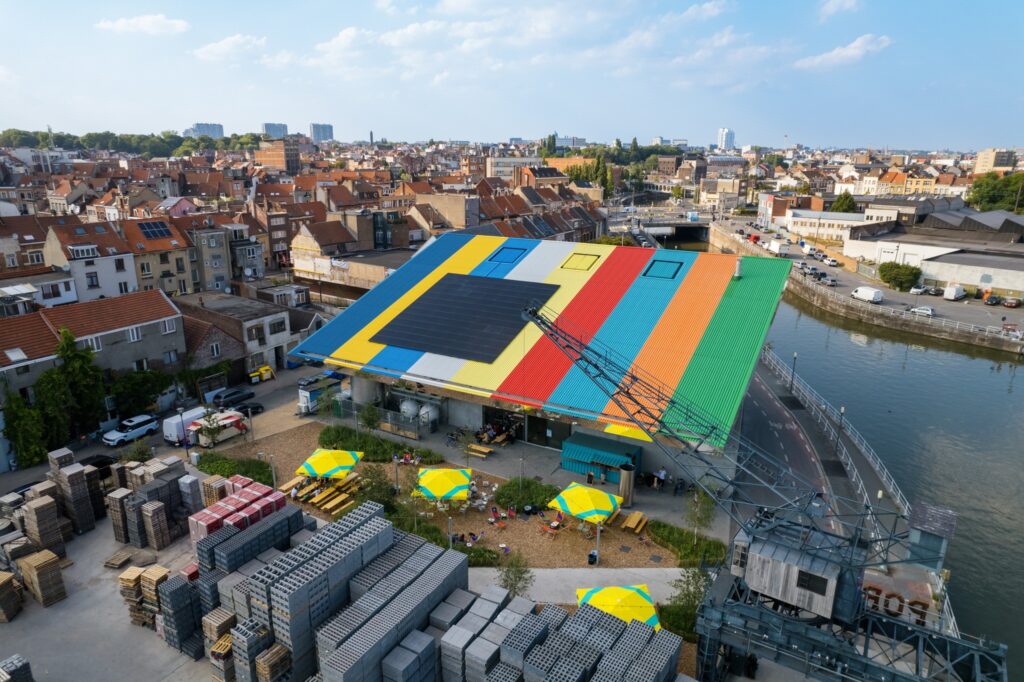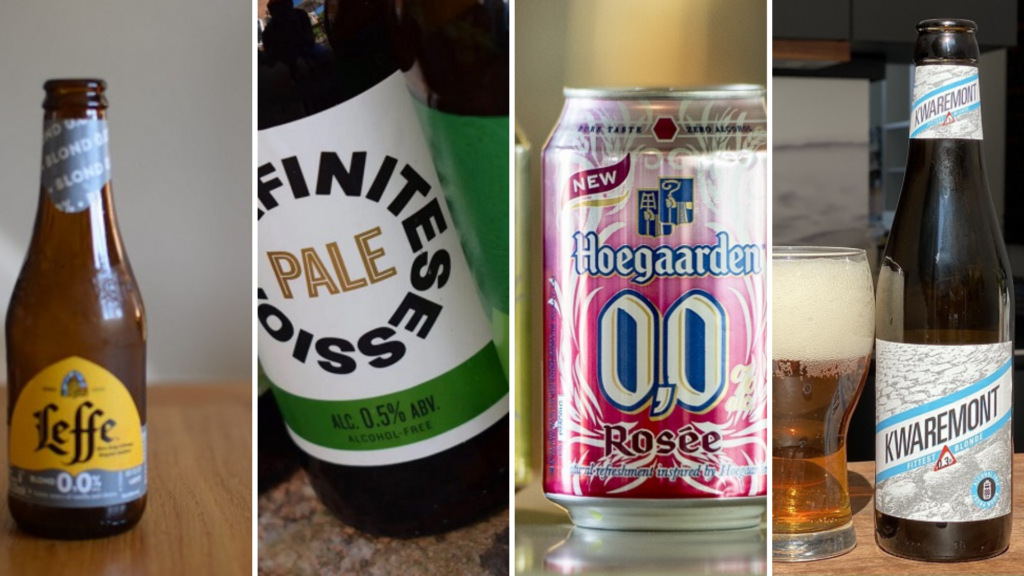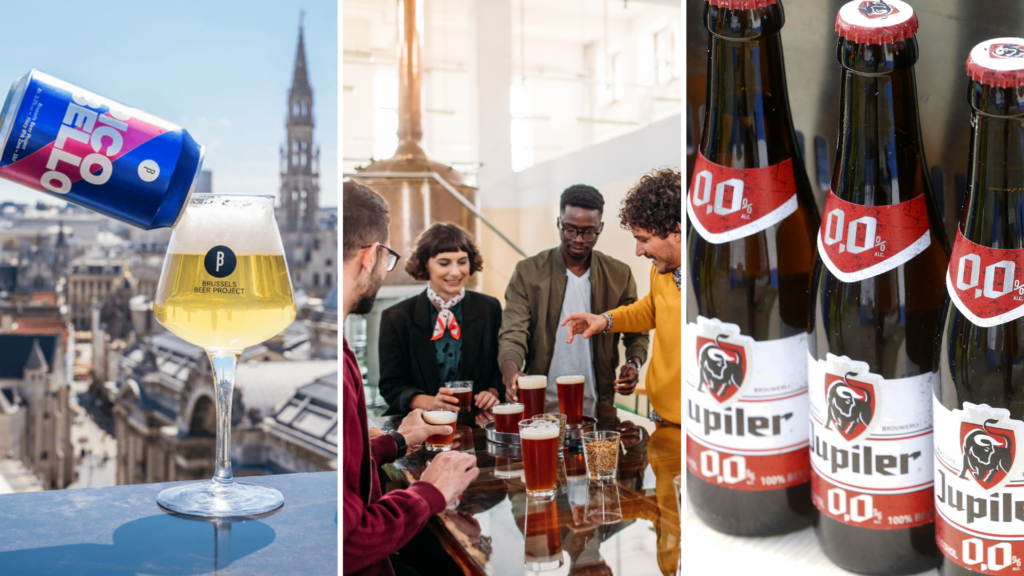Belgium's brewers and major supermarket chains have seen a sharp rise in sales of non-alcoholic beers, demonstrating a growing thirst for alcohol-free beverages.
The market for low and non-alcoholic beer has seen steady growth over the past few years. In 2023 the Brewers of Europe, an organisation that represents 29 national beer associations in Brussels, reported that non-alcoholic beer now accounts for over 5% of the Belgian beer market. The alcohol-free beer market grew by 24.3% between 2021 and 2023 with industry experts predicting another double-digit increase in 2024.
In a recent survey conducted by VRT, Delhaize was found to have sold 40% more volume of non-alcoholic beer in 2024 than in 2023, accounting for more than 6 million units since the start of this year. Albert Heijn saw a 25% increase in non-alcoholic beer sales; for Carrefour it was 15%. In August 2024, Colruyt launched an alcohol-free version of its famously cheap Cara Pils beer, Cara 0.0, after noticing that 1 in 3 customers bought an alcohol-free alternative at Colruyt in 2023 (compared to 1 in 5 in 2022).
In conversation with The Brussels Times, co-founder of the Brussels Beer Project (BBP) Sébastien Morvan also noted a substantial rise in non-alcoholic beers. “We believe in the alcohol-free sector and we have believed in it for many years.” The company released its first non-alcoholic beer Pico Bello in 2019, becoming the first small brewer in Belgium to do so. While it enjoyed mild success at first, Morvan says that in the last 12 months sales of their non-alcoholic beers (there are now two versions) have “exploded.”
The world’s biggest beer company, Leuven-based AB InBev (which produces Stella Artois, Budweiser, and Becks, among others), already has seven non-alcoholic beers on the Belgian market. It recently announced that by the end of 2025 at least 20% of the company’s global beer volume will consist of low and non-alcoholic beers.

The BBP brewery in Anderlecht. Credit: Brussels Beer Project
Why is non-alcoholic beer suddenly all the rage?
For a long time, the taste of non-alcoholic beer was a big deterrent. As Delhaize spokesperson Roel Dekelver told VRT, "Five to ten years ago we had maybe five products in the range. We also have to acknowledge that the taste was not the same as a classic beer.”
Today, new scientific and technological innovations are allowing brewers to get closer to that time-honoured taste. In 2023, AB InBev invested €31 million in its Belgian breweries, with a significant portion allocated to dealcoholisation technology. Their alcohol-free beverages undergo the standard brewing process before being passed through a vacuum distillation machine that removes the alcohol.
By contrast, Brussels Beer Project does not put its beers through a dealcoholisation process but instead triggers micro-fermentations to produce beers with very low alcohol content (Pico Bello’s for example is 0.3%).
Morvan was critical of non-alcoholic "industrial beers" for their sugary quality and "sticky mouthfeel". BBP's method aims to recreate a more authentic beer taste, he explains. "We don’t like sugar at BBP. We don’t want our consumers to think they are drinking sugary, bubbly water when they drink our alcohol-free beers. Alcohol-free beers should not be boring." Their goal at BBP is to make non-alcoholic beers attractive, sexy even.

Some of the non-alcoholic (and low alcohol) beers available in Belgium. Credit: Belga
The availability of quality non-alcoholic beers as well as their normalisation within society give some explanation of the shift towards alcohol-free. Non-alcoholic beer on menus is no longer a strange sight. "You can now go to a bar, be with your friends and drink only non-alcoholic beer with no questions asked," explains Morvan.
What used to be seen as an alternative for pregnant women or alcoholics is now frequently favoured by young, active people seeking to be more health-conscious or to not be plagued by a hangover the next day.
Morvan points to the gradual decline in beer sales in Belgium and predicts that in the coming years one in five beers sold in the country will be alcohol-free. As non-alcoholic beers become more mainstream, they are likely to redefine the future landscape of beer consumption in Belgium and beyond.

